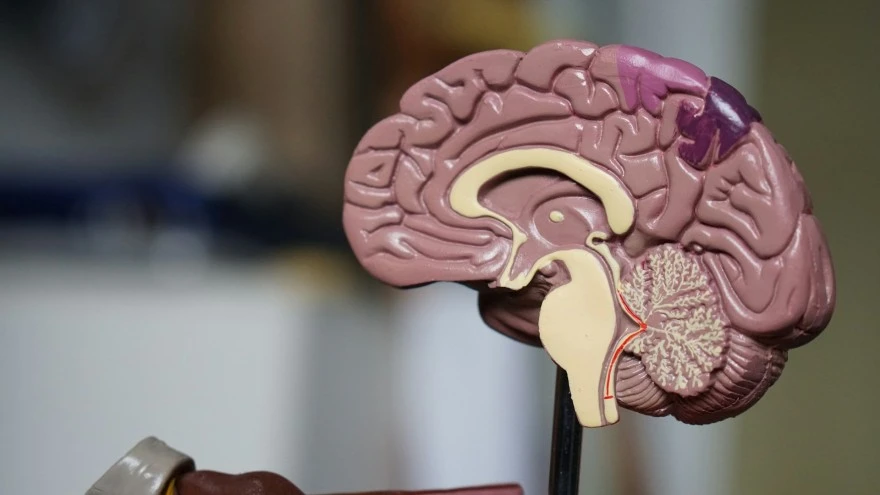Preventive Healthcare
Implantation Bleeding - Symptoms, Causes and Treatment

Table of Contents
- What is Implantation Bleeding?
- What Causes Implantation Bleeding?
- When Does Implantation Bleeding Occur?
- How Does Implantation Bleeding Occur?
- Are There Risks Associated with Implantation Bleeding?
- When to Consult a Doctor for Implantation Bleeding?
- What Are Potential Signs and Symptoms to Look for in Implantation Bleeding?
- What Does Implantation Bleeding Look Like? How to Differentiate Regular Menstrual Periods from Implantation Bleeding?
- How Long Does Implantation Bleeding Last?
- How Is Implantation Bleeding Diagnosed?
- How Is Implantation Bleeding Treated?
What is Implantation Bleeding?
Implantation bleeding describes conditions characterized by spotting or light bleeding, much less than an average menstrual period flow. This can be an early sign of pregnancy. However, noticing and differentiating implantation bleeding can be challenging because it may mimic a regular menstrual period and can happen after a menstrual cycle. Therefore, knowing the critical difference between a menstrual period and implantation bleeding is vital.
If you are unsure whether you experienced implantation bleeding or your menstrual period, it is generally advised to take a pregnancy test or consult your doctor.
What Causes Implantation Bleeding?
There is no specific cause for implantation bleeding to happen. It is the body's natural reaction to eliminate broken blood vessels in the form of vaginal bleeding.
When Does Implantation Bleeding Occur?
Implantation bleeding typically occurs about 1-2 weeks after conception, the time when the male sperm cell unites with the egg to form the embryo.
How Does Implantation Bleeding Occur?
After conception, the fertilised embryo travels down the fallopian tube to attach to the uterus. This attachment of the embryo to the lining of the uterus wall can sometimes break the adjacent blood vessels in the lining and result in the discharge of lighter pink or brownish blood, known as implantation bleeding.
Are There Risks Associated with Implantation Bleeding?
Implantation bleeding is a natural phenomenon in early pregnancy and does not pose any problem.
Most vaginal bleeding caused by implantation resolves within a couple of days with no interventional treatment necessary. However, severe conditions such as molar pregnancy, ectopic pregnancy, or miscarriage may also show similar signs of implantation bleeding. So, it is always better to be aware and not to neglect the symptoms of your vaginal discharge during pregnancy.
When to Consult a Doctor for Implantation Bleeding?
Contact your obstetric and gynaecology specialist immediately if you're concerned about your vaginal implant or experiencing any one or more of the following signs:
- Persistent bleeding
- Severe headache
- Prolonged abdominal pain
- Pain or burning during urination
- Extreme/sudden change in body temperature
- Blood clots in vaginal discharge
- Prolonged cervix irritation or rashes
What Are Potential Signs and Symptoms to Look for in Implantation Bleeding?
Some main signs and symptoms of implantation bleeding that you may notice at the beginning of pregnancy include:
- Light cramping
- Spotting of vaginal bleeding (light or different colour compared to mensural bleeding)
- Headache
- Nausea (morning sickness)
- Lower back pain
- Mood change
- Stomach blotting
- Breast tenderness
- Implantation dip (decrease in basal body temperature)
- Vomiting
- Constipation
- Increased food cravings and aversion
- Fatigue
- Frequent urination
- Mild discomfort
The above symptoms can signify premenstrual disorders or ovulation, so having these along with spotting discharge does not always guarantee that they indicate a pregnancy.
Opt for an appropriate pregnancy test or consult your doctor to get an accurate diagnosis and confirmation of your conception.
What Does Implantation Bleeding Look Like? How to Differentiate Regular Menstrual Periods from Implantation Bleeding?
Not everyone will experience the same type of implantation bleeding. So, it can often be challenging to differentiate it from regular menstrual bleeding.
Here are a few key differences that can help you differentiate between your periods and implantation bleeding:
- Colour: The appearance and colour of implantation bleeding can vary from person to person. In general, it tends to be a light pinkish to brownish colour. On the other hand, menstrual bleeding can start as pale pink and get darker to red as the days progress.
- Duration of the bleeding: Implantation bleeding usually lasts only a couple of hours to two full days. In contrast, menstrual bleeding may last about 5–6 days.
- Amount of bleeding discharge: Implantation often discharges much lighter bleeding or spotting instead of a progressively heavier flow-like menstrual period bleeding.
- Clotting: Clotting is rare in implantation bleeding. If you notice any clots in your bleeding, you can rule out the implantation cause. However, clots or growths like polyps and fibroids in your bleeding can sometimes indicate severe underlying problems. In such cases, immediate medical attention is required.
- The severity of cramping: Cramping is mild or none in implantation bleeding. On the other hand, regular periods usually accompany more severe and long-lasting cramping.
How Long Does Implantation Bleeding Last?
Unlike menstrual periods, implantation bleeding is short and typically lasts anywhere from a few hours to two full days. For some women, the spotting or light bleeding can get heavier and last about three days.
If you're unsure of the exact cause or are experiencing prolonged vaginal bleeding during your pregnancy, consult an obstetric and gynaecology specialist.
How Is Implantation Bleeding Diagnosed?
Some standard diagnostic tests recommended to rule out severe conditions mimicking the implantation bleeding and for confirming your pregnancy include,
- Human Chorionic Gonadotropin (HCG) blood test: An HCG blood test measures the amount of a hormone called human chorionic gonadotropin. This measurement of HCG in your blood or urine sample can help determine pregnancy and its related complications.
- Early pregnancy ultrasound or foetal ultrasound scan: Fetal ultrasound scans are usually recommended at the early stages of your pregnancy. Getting these scans can help determine your gestational age (a measure of the length of your pregnancy) and complications related to pregnancy.
- Papanicolaou (Pap) smear test: Pap test is a routine screening test to help prevent and rule out cervical cancer and sexually transmitted diseases that can increase your risk of vaginal bleeding.
How Is Implantation Bleeding Treated?
Implantation bleeding is not a health problem; it is normal for women to experience it during their early pregnancy. There is no specific treatment available for implantation bleeding.
Implantation bleeding rarely causes health concerns. In rare situations where implantation bleeding is accompanied by severe pain or discomfort, doctors may prescribe over-the-counter or non-steroidal anti-inflammatory drugs to help alleviate implantation bleeding symptoms.
If you're concerned or notice abnormal bleeding during pregnancy, immediately consult an obstetric and gynaecology specialist for medical assistance.
Conclusion:
Implantation bleeding is a natural phenomenon during pregnancy. Spotting or light vaginal discharge does not always mean anything negative; it can also be an early sign of pregnancy.
You may consult doctors at Metropolis Healthcare for support and medical assistance, no matter how mild your vaginal bleeding is during pregnancy.


























